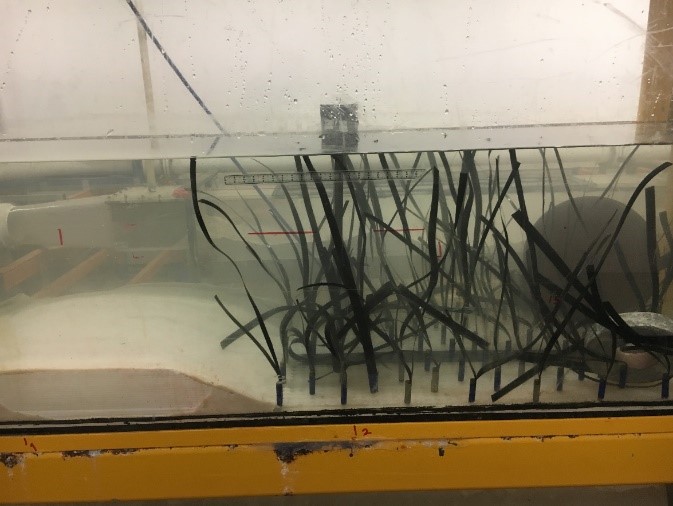PROJECT
Assessing novel nature-based solutions for coastal flood defense
Assessing novel nature-based solutions for coastal flood defense
Status: Complete
Supervisors
- Ryan Lowe
Professor, Oceans Graduate School, UWA - Marco Ghisalberti
Senior Lecturer, Oceans Graduate School, UWA
- Maryam Abdolahpour
Postdoctoral Research Fellow, Oceans Graduate School, UWA
Students
- Jeffrey Kitson
Master of Professional Engineering Student
Project Description
Traditionally, engineering strategies to manage flood risk along coastlines have relied on 'hard' or ‘gray’ engineering infrastructure, such as seawalls and breakwaters, that often have numerous undesirable consequences on a coastal zone (e.g. damaging coastal ecosystems, disrupting natural coastal processes, shifting problems to other adjacent coastal regions, and devaluing coastal amenities, including aesthetics). There is a growing movement internationally to adopt new “green” or “hybrid” approaches that use natural features of a coastal ecosystem to provide equivalent coastal flood defense. This includes planting or restoration of aquatic vegetation (e.g. seagrasses and salt marsh) and use of natural or artificial reefs. Successful nature-based flood defense projects can thus protect coastlines while having numerous additional co-benefits such as enhancing coastal ecosystems, improving coastal water quality, providing habitat for marine species, and improving coastal aesthetics.
As part of Riverlab, this project used Swan River as a case study to investigate the feasibility of using nature-based approaches, such as large-scale planting of aquatic vegetation and/or artificial structures, to reduce coastal flooding risk. This is a multifaceted project incorporating experimental testing to assess how different approaches modify coastal waves and water levels, application of predictive models and ultimately field trials conducted along the Swan River foreshore.

Figure 1. Artificial Seagrass mats (ASMs) are efficient in capturing sediments and this efficiency increases with mat shoot density. This image shows the start of the test. Image courtesy of Hannah Dawn.
